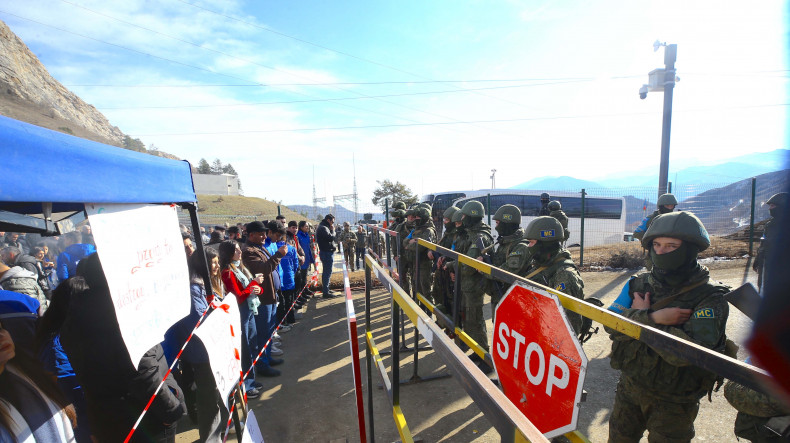
Prolonged blocking of Karabakh lifeline road could lead to dire humanitarian consequences – HRW
The sole road connecting Nagorno-Karabakh with Armenia has been blocked since December 12, 2022, disrupting access to essential goods and services for tens of thousands of ethnic Armenians living there, Human Rights Watch said today.
The blocked road also prevents Nagorno-Karabakh residents from leaving the region; over a thousand people reported to be stranded on one side or the other there are unable to reach their homes. Among them are dozens of children who had traveled to Armenia’s capital, Yerevan, on a school trip, and are now blocked from returning to their parents and homes.
“Prolonged blocking of the only road connecting Nagorno-Karabakh to the outside world could lead to dire humanitarian consequences,” said Hugh Williamson, Europe and Central Asia director at Human Rights Watch. “Regardless of who is blocking the road, Azerbaijan’s authorities and the Russian peacekeeping force deployed there should ensure that access remains open, to enable freedom of movement and ensure people have access to essential goods and services. The longer the disruption to essential goods and services, the greater the risk to civilians.”
Since the morning of December 12, several dozen Azerbaijanis have been demonstrating on the Lachin road, demanding access to mining sites in areas under the control of the de facto authorities in Nagorno-Karabakh, the ethnic Armenian-populated breakaway enclave in Azerbaijan. They claim that the de facto authorities are illegally exploiting gold and copper molybdenum deposits and using the Lachin road to transport those minerals to Armenia.
The protesters have erected tents along the road and continued their actions around the clock. Throughout the past week, they have expressed other grievances, including calls for setting up official Azerbaijan customs checkpoints along the Lachin corridor.
Russian peacekeeping forces, who have been guarding the road since the 2020 war between Armenia and Azerbaijan over Nagorno-Karabakh ended, have also barricaded the road to prevent further escalation of the situation if the people gathered were to advance to the mines in the Nagorno-Karabakh-held areas. Azerbaijan denies that it is responsible for closing the road.
Those in control of the road and the area around it – that is Azerbaijan authorities and the Russian peacekeeping force – should ensure that vehicles with humanitarian goods can pass and that freedom of movement is not stopped, Human Rights Watch said.
Whether the protesters have genuine environmental concerns or other grievances, Azerbaijan should facilitate the right to peaceful protest by interacting with the protesters in a way that ensures the road remains open and the protest does not deny Nagorno-Karabakh residents their rights of access to essential services and goods, and to freedom of movement.
Newsfeed
Videos






























